Thousand Character Classic - 千字文 Qiān zì wén
The longest and last of the three language primers for schoolchildren to learn by heart was the thousand character classic. It consists of 1,000 unique characters (except for one see below) chosen as much for calligraphy practice as for common usage of characters. It is a great achievement to not reuse the same character in such a long piece but it requires the text to go through some contortions to still make sense (imagine 10,000 words of English with no duplicate words!). It was intended to be read aloud (just like the other classics for schoolchildren) in two related groups of four characters, most rhyming with the last. To order these 1,000 characters so that they rhyme and also do not repeat is an amazing feat. It was written about 550CE towards the end of the Period of Disunity. The story is that Emperor Wu ➚ of the southern Liang dynasty (reigned 502-549), centered at Nanjing, requested a new calligraphy exercise for his son. He had one thousand characters penned by the great sage of calligraphy Wang Xizhi. The scholar Zhōu Xìngsì 周兴嗣 took on the task of ordering them so that they made some sort of sense. The legend has it that he worked so hard that he completed it all in just one night but at the cost of turning his hair white. A variant of the story has Wang's revered pieces of calligraphy accidentally jumbled up and Zhou Xingsi putting them back into some sort of order.
It became one of the most hated pieces of world literature as generation after generation of schoolboys were forced to copy out all the characters and memorize the whole piece. It remains well known in many Asian countries that use some Chinese characters including Japan and Korea.
The text gives a summary of all sorts of thing, from cosmology to food but does concentrate somewhat on the correct behavior of a government official. It was the aspiration to be a well paid and respected official that boys (there were very few girls at school in those days) went through mental torture trying to memorize the whole thing.
For further information about this very influential work please read the notes at the bottom of this very long page.
The thousand character classic introduces many new characters and was learned by heart by children in ancient China.
Chapter 1 - Cosmology and the World
1. [1]
天地玄黄Tiān dì xuán huáng,天地玄黃宇宙洪荒yǔ zhòu hóng huāng.宇宙洪荒 Heaven is dark, earth golden; the cosmos is vast and sparse.
2. [9]
日月盈昃Rì yuè yíng zè,日月盈昃辰宿列张chén sù liè zhāng.辰宿列張 Sun and moon wax and wane; the stars are fixed in their constellations.
3. [17]
寒来暑往Hán lái shǔ wǎng,寒來暑往秋收冬藏 qiū shōu dōng cáng.秋收冬藏 Cold follows warmth in due cycle; in autumn, food is gathered for winter.
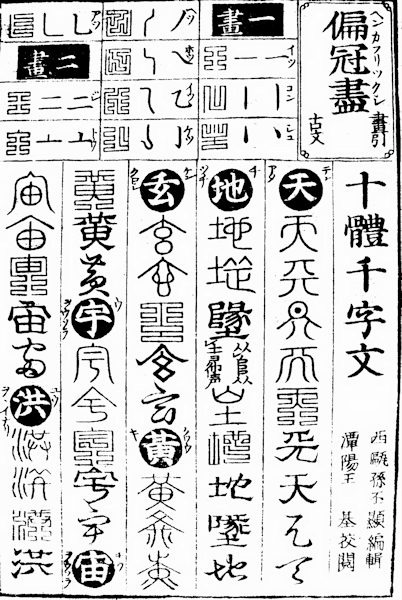
4. [25]
闰余成岁Rùn yú chéng suì,閏餘成歲律吕调阳lǜ lǚ tiáo yáng.律呂調陽 Extra days complete the year; tuning harmonizes yin and yang.
5. [33]
云腾致雨Yún téng zhì yǔ,雲騰致雨露结为霜lù jié wéi shuāng.露結為霜 Clouds ascend to cause rain to fall; morning dew transforms to white frost.
6. [41]
金生丽水Jīn shēng lì shuǐ,金生麗水玉出昆冈yù chū kūn gāng.玉出崑岡 Gold from the Li River; Jade from Kunlun region.
7. [49]
剑号巨阙Jiàn hào jù Quē,劍號巨闕珠称夜光zhū chēng yè guāng.珠稱夜光 Sword named ‘Great Summit’; pearl named ‘Night Glow’.
8. [57]
果珍李柰Guǒ zhēn lǐ nài,果珍李柰菜重芥姜cài zhòng jiè jiāng.菜重芥薑 Of fruits most prized are pears and crab-apples; of seasonings most valued are mustard and ginger.
9. [65]
海咸河淡Hǎi xián hé dàn,海鹹河淡鳞潜羽翔lín qián yǔ xiáng.鱗潛羽翔 Sea is salt, rivers are fresh; fish dive below, birds soar on high.
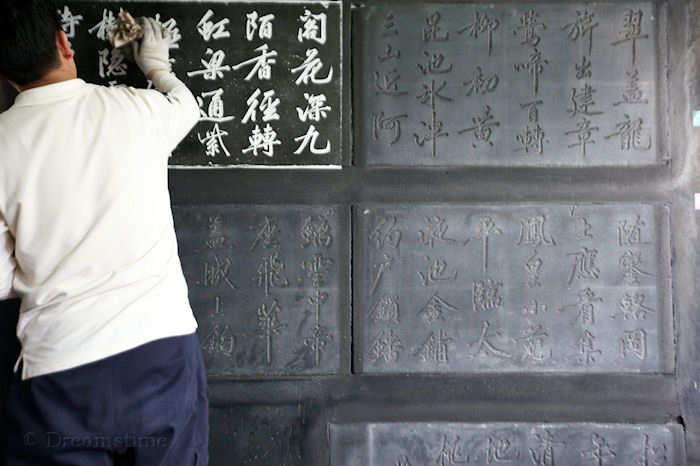
Chapter 2 - The Golden Age of wise rulers
10. [73]
龙师火帝Lóng shī huǒ dì,龍師火帝鸟官人皇niǎo guān rén huáng.鳥官人皇 ‘Dragon Master’, ‘Fire Emperor’, ‘Bird Ruler’, ‘Sovereign of Men’.
11. [81]
始制文字Shǐ zhì wén zì,始製文字乃服衣裳nǎi fú yī cháng.乃服衣裳 Birth of writing and culture then clothes were worn.
12. [89]
推位让国Tuī wèi ràng guó,推位讓國有虞陶唐yǒu Yú Táo Táng.有虞陶唐 The succession to the throne; passed on to Yu, Tao Tang.
13. [97]
吊民伐罪Diào mín fá zuì,吊民伐罪周发殷汤Zhōu Fā Yīn Tāng.周發殷湯 Support the people and punish crimes; as Zhou Fa and Yin Tang did.
14. [105]
坐朝问道Zuò cháo wèn dào,坐朝問道垂拱平章chuí gǒng píng zhāng.垂拱平章 They sat at court pondering the Way; handing down guidance for a peaceful life.
15. [113]
爱育黎首Ài yù lí shǒu,愛育黎首臣伏戎羌chén fú róng qiāng.臣伏戎羌 With love they nurtured their people; overcoming by force the wild tribes.
16. [121]
遐迩一体Xiá ěr yī tǐ,遐邇壹體率宾归王shuài bīn guī wáng.率賓歸王 Both far and near were joined as one; visitors acknowledged the ruler.
17. [129]
鸣凤在竹Míng fèng zài zhú,鳴鳳在竹白驹食场bái jū shí cháng.白駒食場 Then the male phoenix called from the bamboo thicket and the white foal grazed in the courtyard.
18. [137]
化被草木 Huà bèi cǎo mù,化被草木赖及万方lài jí wàn fāng.賴及萬方 Transformation spread even to the grass and trees; sincerity extended everywhere.
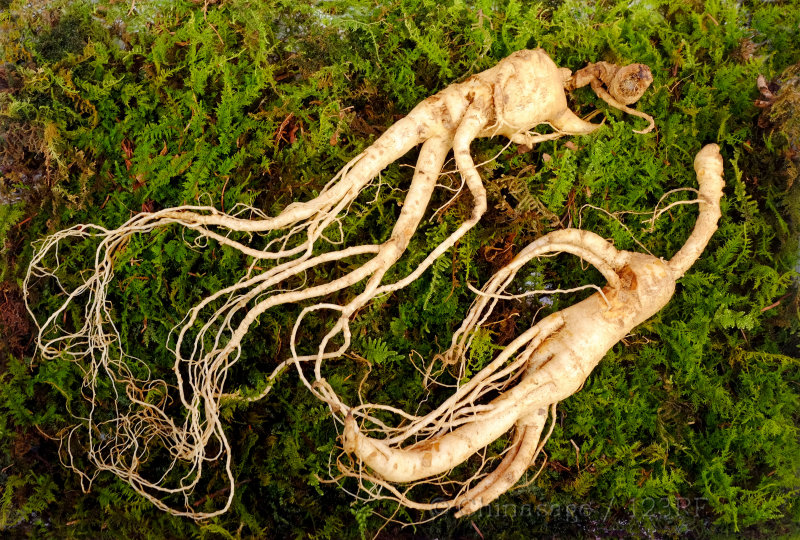
Chapter 3 - Self cultivation
19. [145]
盖此身发Gài cǐ shēn fà,蓋此身髮四大五常sì dà wǔ cháng.四大五常 Our human bodies (to the tips of our hairs) live under four great elements and five constant virtues.
20. [153]
恭惟鞠养 Gōng wéi jū yǎng,恭惟鞠養岂敢毁伤qǐ gǎn huǐ shāng.豈敢毀傷 Honor those that raised you; do not contemplate harming yourself.
21. [161]
女慕贞絜Nǚ mù zhēn jié,女慕貞絜男效才良nán xiào cái liáng.男效才良 Girls should seek chastity and purity; boys aspire to talent and virtue.
22. [169]
知过必改Zhī guò bì gǎi,知過必改得能莫忘dé néng mò wàng.得能莫忘 Recognize faults you must correct; make use of the skills you possess.
23. [177]
罔谈彼短Wǎng tán bǐ duǎn,罔談彼短靡恃己长mí shì jǐ cháng.靡恃己長 Do not point out the faults of others; do not waste your own abilities.
24. [185]
信使可覆Xìn shǐ kě fù,信使可覆器欲难量qì yù nán liàng.器欲難量 Your truthfulness must withstand challenge; mere capabilities are hard to gauge.
25. [193]
墨悲丝染Mò bēi sī rǎn,墨悲絲染诗赞羔羊shī zàn Gāo Yáng.詩贊羔羊 Mozi was grieved that silk had been dyed; as described in the poem ‘The Lamb’.
26. [201]
景行维贤Jǐng xíng wéi xián,景行維賢克念作圣kè niàn zuò shèng.剋念作聖 Enlightened actions maintain worthiness; restrain yourself from too much study to become wise.
27. [209]
德建名立Dé jiàn míng lì,德建名立形端表正xíng duān biǎo zhèng.形端表正 Virtue establishes respectability; the upright have correct appearance.
28. [217]
空谷传声Kōng gǔ chuán shēng,空谷傳聲虚堂习听xū táng xí tīng.虛堂習聽 An empty valley just spreads sound; but even the most modest of halls permits study by attentive listening.
29. [225]
祸因恶积Huò yīn è jī,禍因惡積福缘善庆fú yuán shàn qìng.福緣善慶 Calamity is the reward for accumulating evil; good fortune is the just reward for benevolence.
30. [233]
尺璧非宝Chǐ bì fēi bǎo,尺辟非寶寸阴是竞cùn yīn shì jìng.寸陰是競 A foot length of precious jade is not to be valued; rather struggle for just an inch of time.
31. [241]
资父事君Zī fù shì jūn,資父事君曰严与敬yuē yán yǔ jìng.曰嚴與敬 Sustain your father and serve your lord; that is to say rigorously and respectfully.
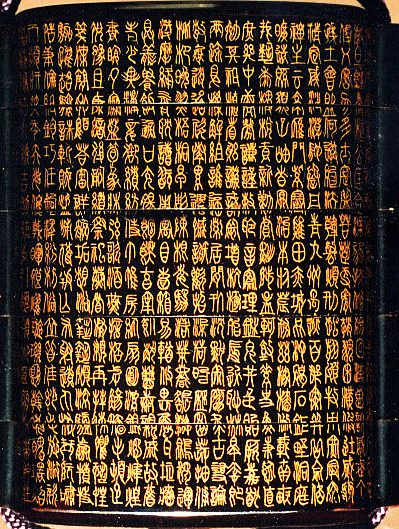
32. [249]
孝当竭力Xiào dāng jié lì,孝當竭力忠则尽命zhōng zé jìn mìng.忠則盡命 Devoted to parents to the utmost; loyal to the end of your life.
33. [257]
临深履薄Lín shēn lǚ bó,臨深履薄夙兴温清sù xīng wēn qìng.夙興溫清 Take care when approaching chasms and walking on thin ice; in the morning rise early whether warm or cold.
34. [265]
似兰斯馨Sì lán sī xīn,似蘭斯馨如松之盛rú sōng zhī shèng.如松之盛 Like the orchid in fragrance; as the pine flourishes.
35. [273]
川流不息Chuān liú bù xī,川流不息渊澄取映yuān chéng qǔ yìng.淵澄取映 The river flows without ceasing; deep, unruffled waters allow reflection.
36. [281]
容止若思Róng zhǐ ruò sī,容止若思言辞安定yán cí ān dìng.言辭安定 Let your manner by thoughtful; may what you say be calm and disciplined.
37. [289]
笃初诚美Dǔ chū chéng měi,篤初誠美慎终宜令shèn zhōng yí lìng.慎終宜令 To begin earnestly is truly excellent; but carefulness to see it through is equally honorable.
38. [297]
荣业所基Róng yè suǒ jī,榮業所基籍甚无竟jí shèn wú jìng.籍甚無竟 Prodigious study forms the foundation; and then your good reputation will be limitless.
39. [305]
学优登仕Xué yōu dēng shì,學優登仕摄职从政shè zhí cóng zhèng.攝職從政 Excel in studies and become an official; master your duties to join in the work of government.
40. [313]
存以甘棠Cún yǐ gān táng,存以甘棠去而益咏qù ér yì yǒng.去而益詠 While alive, work under the sweet pear tree; when dead, people will still sing your praises.
41. [321]
乐殊贵贱Yuè shū guì jiàn,樂殊貴賤礼别尊卑lǐ bié zūn bēi.禮別尊卑 Music differentiates the noble and the base; decorum the superior and inferior.
42. [329]
上和下睦Shàng hé xià mù,上和下睦夫唱妇随fū chàng fù suí.夫唱婦隨 With superiors have peace, with inferiors harmony; as the husband's song is accompanied by his wife.
43. [337]
外受傅训Wài shòu fù xùn,外受傅訓入奉母仪rù fèng mǔ yí.入奉母儀 Out of doors accept your tutor's instruction; at home show respect for mother's counsels.
44. [345]
诸姑伯叔Zhū gū bó shū,諸姑伯叔犹子比儿yóu zǐ bǐ ér.猶子比兒 Towards each aunt and uncle; be just like you were their own child.
45. [353]
孔怀兄弟Kǒng huái xiōng dì,孔懷兄弟同气连枝tóng qì lián zhī.同氣連枝 Care deeply about your brothers; they share the same breath as yourself and are like branches of the same tree.
46. [361]
交友投分Jiāo yǒu tóu fèn,交友投分切磨箴規qiè mó zhēn guī.切磨箴規 In friendship each must do their part; cut and polish yourself or else beware!
47. [369]
仁慈隐恻 Rén cí yǐn cè,仁慈隱惻造次弗离zào cì fú lí.造次弗離 Generosity, compassion and tender-feeling; it would be rash to abandon them.
48. [377]
节义廉退Jié yì lián tuì,節義廉退颠沛匪亏diān pèi fěi kuī.顛沛匪虧 If integrity, justice and honesty are in decline; even though when overwhelmed these should never be lacking.
49. [385]
性静情逸Xìng jìng qíng yì,性靜情逸心动神疲xīn dòng shén pí.心動神疲 If your nature is calm, the passions will be subdued; but when the heart is agitated the spirit is wearied.
50. [393]
守真志满Shǒu zhēn zhì mǎn,守真誌滿逐物意移zhú wù yì yí.逐物意移 Maintaining purity brings fulfillment; but if you pursue distractions your purpose will waver.
51. [401]
坚持雅操Jiān chí yǎ cāo,堅持雅操好爵自縻hǎo jué zì mí.好爵自縻 Firmly grasp fine aspirations; innate nobility will shield you.
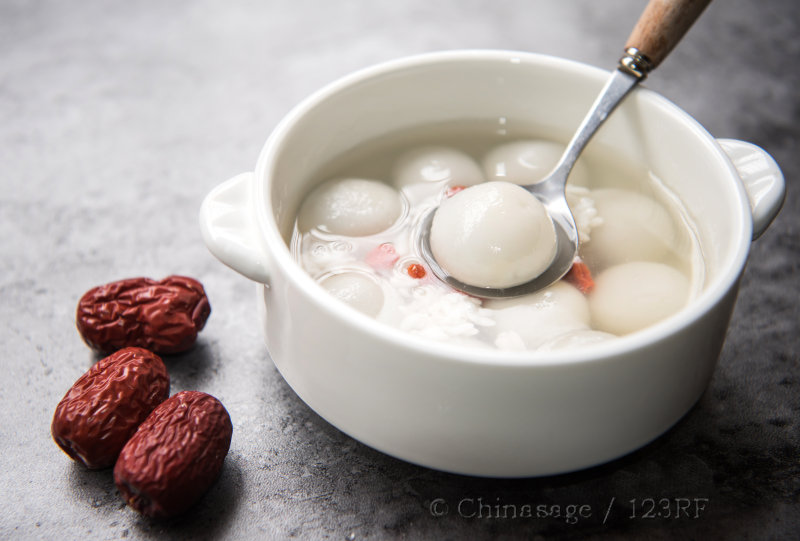
Chapter 4 - Imperial life and duties
52. [409]
都邑华夏Dū yì huà xià,都邑華夏东西二京dōng xī èr jīng.東西二京 The ancient capitals were splendid and glorious; both Eastern and Western capital cities.
53. [417]
背邙面洛Bèi Máng miàn Luò,背邙面洛浮渭据泾fú Wèi jù Jīng.浮渭據涇 The first of these is backed by Mount Mang and fronted by the River Luo; around the other is the swift Wei and the meandering Jing rivers.
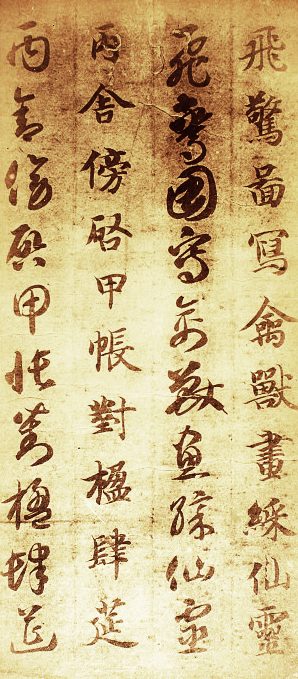
54. [425]
宫殿盘郁Gōng diàn pán yù,宮殿盤鬱楼观飞惊lóu guān fēi jīng.樓觀飛驚 Their palaces and halls were densely arrayed; the buildings so high that looking down inspired fear of plunging down.
55. [433]
图写禽兽Tú xiě qín shòu,圖寫禽獸画彩仙灵huà cǎi xiān líng.畫彩仙靈 Drawings were made of birds and animals; depictions of immortals and deities.
55. [441]
丙舍傍启Bǐng shè bàng qǐ,丙舍傍啟甲帐对楹jiǎ zhàng duì yíng.甲帳對楹 Splendid apartments opened out on each side; fine drapes adorn the parallel rows of pillars.
57. [449]
肆筵设席Sì yán shè xí,肆筵設席鼓瑟吹笙gǔ sè chuī shēng.鼓瑟吹笙 There were spread out lavish banquets; and there were played the drum, harp and the sheng was blown.
58. [457]
升阶纳陛Shēng jiē nà bì,升階納陛弁转疑星biàn zhuàn yí xīng.弁轉疑星 Ascending the steps to the throne; with the whirling hats of officials as numberless as the stars.
59. [465]
右通广内Yòu tōng guǎng nèi,右通廣內左达承明zuǒ dá chéng míng.左達承明 On the right is the library; on the left the scholars' dormitory.
60. [473]
既集坟典Jì jí fén diǎn,既集墳典亦聚群英yì jù qún yīng.亦聚群英 There can be found the most ancient books and records; and also a host of wise men.
61. [481]
杜稿钟隶Dù gǎo Zhōng lì,杜稿鐘隸漆书壁经qī shū bì jīng.漆書壁經 Du’s cursive style and Zhong’s formal style; ancient lacquered books and classics concealed in a wall.
62. [489]
府罗将相Fǔ luó jiàng xiàng,府羅將相路侠槐卿lù xiá huái qīng.路俠槐卿 In the mansions senior officials assemble in order; the junior grades flank their path down the road.
63. [497]
户封八县Hù fēng bā xiàn,戶封八縣家给千兵jiā jǐ qiān bīng.家給千兵 Some of these households will be granted eight counties; and to these families a thousand troops.
64. [505]
高冠陪辇Gāo guān péi niǎn,高冠陪輦驱毂振缨qū gǔ zhèn yīng.驅轂振纓 With their high hats they accompany the Imperial carriage; their ribbons flutter with the rapid stir.
65. [513]
世禄侈富Shì lù chǐ fù,世祿侈富车驾肥轻chē jià féi qīng.車駕肥輕 Their inherited wealth gives plenteous riches; their carriages are pulled by sturdy but light steeds.
66. [521]
策功茂实Cè gōng mào shí,策功茂實勒碑刻铭lè bēi kè míng.勒碑刻銘 Their noble plans are many and attested; they are carved on stones as inscriptions.
67. [529]
磻溪伊尹Pán xī Yī Yǐn,磻溪伊尹佐时阿衡zuǒ shí ā héng.佐時阿衡 At Pan brook he hired a man and also Yi Yin; both assisted for a while and became chief ministers.
68. [537]
奄宅曲阜Yǎn zhái Qū Fù,奄宅曲阜微旦孰营wēi Dàn shú yíng.微旦孰營 Within Yan is the city of Qufu; who but the Duke of Zhou could have built it?
69. [545]
桓公匡合Huán gōng kuāng hé,桓公匡合济弱扶倾jì ruò fú qīng.濟弱扶傾 The Duke of Huan put things in order and united the people; he helped the feeble and revived the stricken.
70. [553]
绮回汉惠Qǐ huí Hàn Huì,綺回漢惠说感武丁Yuě gǎn Wǔ Dīng.說感武丁 Qi returned to aid Han Hui; influenced Wu Ding in a dream.
71. [561]
俊乂密勿Jùn yì mì wù,俊乂密勿多士寔宁duō shì shí níng.多士寔寧 The talented scholars regulate access to state secrets; and the many who cultivate true peace.
72. [569]
晋楚更霸Jìn Chǔ gēng bà,晉楚更覇赵魏困横Zhào Wèi kùn hèng .趙魏困橫 The Jin and Chu states became tyrannical; the states of Zhao and Wei fell into misery and lawlessness.
73. [577]
假途灭虢Jiǎ tú miè Guó,假途滅虢践土会盟Jiàn Tǔ huì méng.踐土會盟 Feigning a march the Jin army destroyed the state of Guo; at Jian Tu the rulers signed a treaty.
74. [585]
何遵约法Hé zūn yuē fǎ,何遵約法韩弊烦刑Hán bì fán xíng.韓弊煩刑 Xiao Hé advocated simple laws; he followed Han (Fei)'s philosophy but suffered cruelly under the laws that he himself instigated.
75. [593]
起翦颇牧Qǐ Jiǎn Pō Mù,起翦頗牧用军最精yòng jūn zuì jīng.用軍冣精 The famous generals Qi, Jian, Po and Mu were pre-eminent in tactics.
76. [601]
宣威沙漠Xuān wēi Shā mò,宣威沙漠驰誉丹青chí yù dān qīng.馳譽丹青 Tales of their ascendancy reached even the deserts; their reputation swiftly spread and they are immortalized in paintings.
77. [609]
九州禹迹Jiǔ zhōu Yǔ jì,九州禹跡百郡秦并bǎi jùn Qín bìng.百郡秦併 All the nine regions of China bear the traces of Yu the Great; All the hundred districts united by the Qin.
78. [617]
岳宗泰岱Yuè zōng Tài dài,嶽宗泰岱禅主云亭chàn zhǔ Yún Tíng.禪主云亭 Of the sacred mountains Taishan is the most honored; at its base are altars at Yun and Ting
79. [625]
雁门紫塞Yàn mén zǐ sài,雁門紫塞鸡田赤城Jī Tián Chì Chéng.雞田赤城 The Yanmen pass and the Great Wall; Ji Tian station and Chicheng mountain.
80. [633]
昆池碣石Kūn chí jié shí,昆池碣石钜野洞庭Jù yě Dòng tíng.鉅野洞庭 Kunming Pool and Jieshi Rocks; Juye Wasteland and Dongting Lake.
81. [641]
旷远绵邈Kuàng yuǎn mián miǎo,岩岫杳冥岩岫杳冥yán xiù yǎo míng.曠遠綿邈 They are vast and distant, enduring forever; shaded cliffs and caverns shrouded in gloom.
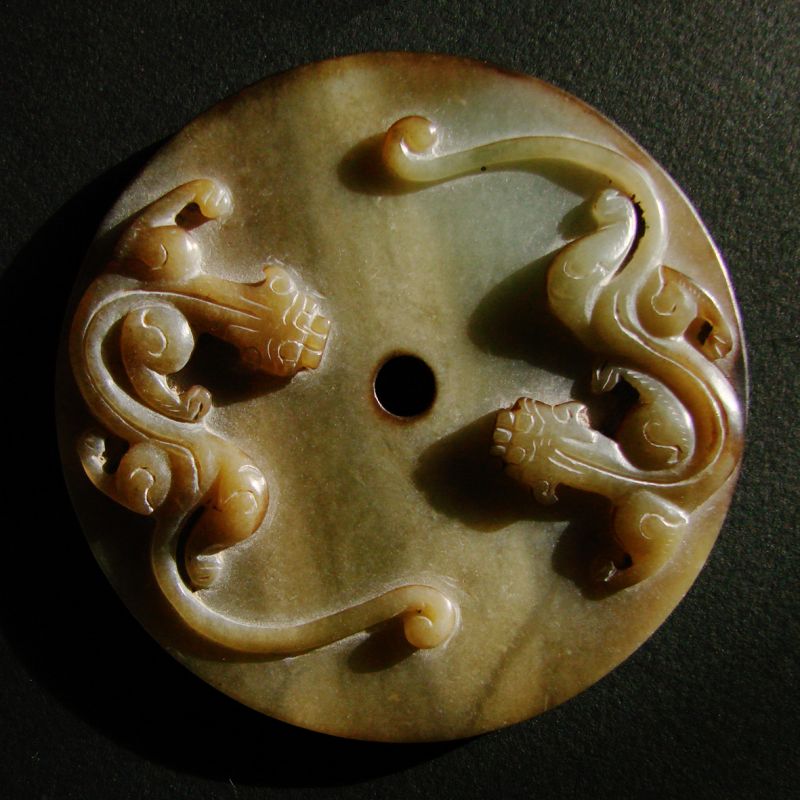
Chapter 5: Rural life
82. [649]
治本于农Zhì běn yú nóng,治本於農务兹稼穑wù zī jià sè.務茲稼穡 Sound management of agriculture is vital - always give attention to farm work.
83. [657]
俶载南亩Chù zǎi nán mǔ,俶載南畝我艺黍稷wǒ yì shǔ jì.我藝黍稷 The year begins in the southern fields; I cultivate the cereal crop.
84. [665]
税熟贡新Shuì shú gòng xīn,稅熟貢新劝赏黜陟quàn shǎng chù zhì.勸賞黜陟 The tax due on ripe grain spurs the cultivation of the new crop; indolence is punished, hard-work rewarded.
85. [673]
孟轲敦素Mèng Kē dūn sù ,孟軻敦素史鱼秉直Shǐ Yú bǐng zhí.史魚秉直 Mencius was kind-hearted and genuine; Shi Yu was steadfastly truthful.
86. [681]
庶几中庸Shù jī zhōng yōng,庶幾中庸劳谦谨敕láo qiān jǐn chì.勞謙謹敕 They neared the Golden Medium; striving for modesty and obeying orders.
87. [689]
聆音察理Líng yīn chá lǐ ,聆音察理鉴貌辨色jiàn mào biàn sè.鑒貌辨色 Listen to what is said and examine its logic; scrutinize people's countenance and their appearance.
88. [697]
贻厥嘉猷Yí jué jiā yóu,貽厥嘉猷勉其祗植miǎn qí zhī zhí.勉其祗植 Make your exemplary principles your legacy; exert yourself so as to nurture respectfulness.
89. [705]
省躬讥诫xǐng gōng jī jiè,省躬譏誡宠增抗极chǒng zēng kàng jí.寵增抗極 Scrutinize yourself when mocked and admonished; zealously guard against praise that may inflate self-esteem.
90. [713]
殆辱近耻Dài rǔ jìn chǐ,殆辱近恥林皋幸即lín gāo xìng jí.林皋幸即 When malevolent dishonor and disgrace comes near; spend time visiting the woods and streams.
91. [721]
两疏见机Liǎng Shū jiàn jī,兩疏見機解组谁逼jiě zǔ shéi bī.解組誰逼 The two Shu brothers observing other's intentions resigned from office, no-one compelled them.
92. [729]
索居闲处Suǒ jū xián chù,索居閒處沉默寂寥chén mò jì liáo.沉默寂寥 Look for a tranquil place to live; to meditate alone.
93. [737]
求古寻论Qiú gǔ xún lùn,求古尋論散虑逍遥sàn lǜ xiāo yáo.散慮逍遙 Seek out and ponder on ancient writings; dispel worries and take your leisure.
94. [745]
欣奏累遣Xīn zòu lèi qiǎn,欣奏累遣戚谢欢招qī xiè huān zhāo.慼謝歡招 Enjoy music to banish tension; troubles wane as joy is welcomed.
95. [753]
渠荷的历Qú hé de lì,渠荷的歷园莽抽条yuán mǎng chōu tiáo.園莽抽條 In the waterways the lotus plant grows; in the countryside lush wild-flowers flourish.
96. [761]
枇杷晚翠Pí pá wǎn cuì,枇杷晚翠梧桐早凋Wú tóng zǎo diāo.梧桐早凋 The Loquat tree retains its green leaves; while the Wutong tree's leaves are early to fade.
97. [769]
陈根委翳Chén gēn wěi yì,陳根委翳落叶飘摇luò yè piāo yáo.落葉飄搖 Old roots suffer from decay and are cast aside; the fallen leaves float down forlornly in the wind.
98. [777]
游鹍独运Yóu Kūn dú yùn,游鵾獨運凌摩绛霄líng mó jiàng xiāo.凌摩絳霄 The huge, roaming bird journeys alone; soaring to touch the purple heavens.
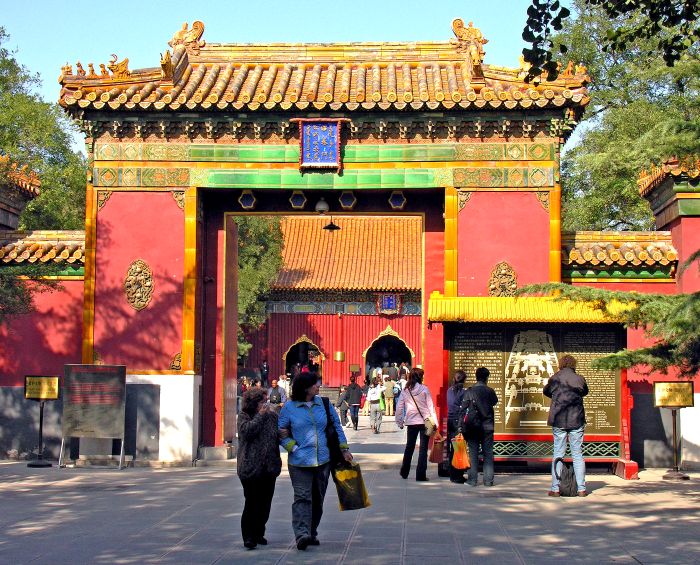
Chapter 6. Advice for the student
99. [785]
耽读玩市Dān dú wán shì,耽讀玩市寓目囊箱yù mù náng xiāng.庽目囊箱 Read for fun at the market; with a roving eye look for new boxes of books.
100. [793]
易輶攸畏Yì yóu yōu wèi,易輶攸畏属耳垣墙zhǔ ěr yuán qiáng.屬耳垣牆 Gossip and rash talk should be dreaded as even apartment walls have ears.
101. [801]
具膳餐饭Jù shàn cān fàn,具膳餐飯适口充肠shì kǒu chōng cháng.適口充腸 When preparing meals eat plain food which suits the palate and fills the stomach.
102. [809]
饱饫烹宰Bǎo yù pēng zǎi,飽飫烹宰饥厌糟糠jī yàn zāo kāng.饑厭糟糠 Gluttons will gorge on boiled meat; the starving will relish even the poorest husks.
103. [817]
亲戚故旧Qīn qī gù jiù,親戚故舊老少异粮lǎo shào yì liáng.老少異糧 Relatives and old friends; the old and the young like different food.
104. [825]
妾御绩纺Qiè yù jì fǎng,妾御績紡侍巾帷房shì jīn wéi fáng.侍巾帷房 The concubines run the chores; they do the laundry and tidy rooms.
105. [833]
纨扇圆絜Wán shàn yuán xié,紈扇圓絜银烛炜煌yín zhú wěi huáng.銀燭煒煌 White silk fans round and unblemished; silver light of brilliant candles.
106. [841]
昼眠夕寐Zhòu mián xī mèi,晝眠夕寐蓝笋象床lán sǔn xiàng chuáng.藍筍象床 For snoozing at noon and sleeping at night; blue bamboo mats and ivory framed beds.
107. [849]
弦歌酒宴Xián gē jiǔ yàn,弦歌酒宴接杯举觞jiē bēi jǔ shāng.接杯舉觴 Amidst music and feasting; raise the goblet and make a toast.
108. [857]
矫手顿足Jiǎo shǒu dùn zú,矯手頓足悦豫且康yuè yù qiě kāng.悅豫且康 Wave the hands and stomp your feet; everyone is joyful and at ease.
109. [865]
嫡后嗣续Dí hòu sì xù,嫡後嗣續祭祀烝尝jì sì zhēng cháng.祭祀烝嘗 May the principal heir endure; offer sacrifices at the appropriate season.
110. [873]
稽颡再拜Qǐ sǎng zài bài,稽顙再拜悚惧恐惶sǒng jù kǒng huáng.悚懼恐惶 Kowtowing to the ground repeatedly; in dread, awe and trembling.
111. [881]
笺牒简要Jiān dié jiǎn yào,箋牒簡要顾答审详gù dá shěn xiáng.顧答審詳 In correspondence be concise; give carefully considered and comprehensive replies.
112. [889]
骸垢想浴Hái gòu xiǎng yù,骸垢想浴执热愿凉zhí rè yuàn liáng.執熱願涼 When dirty to the bone we desire a bath; when we grasp something too hot we crave coolness.
113. [897]
驴骡犊特Lǖ luó dú tè,驢騾犢特骇跃超骧hài yuè chāo xiāng.駭躍超驤 Just as donkeys, camels, calves and bullocks do when startled - they leap around and take flight.
114. [905]
诛斩贼盗Zhū zhǎn zéi dào,誅斬賊盜捕获叛亡bǔ huò pàn wáng.捕獲叛亡 Punish by beheading thieves, traitors and robbers; seize the rebels who flee.

Chapter 7. Final encouragements
115. [913]
布射僚丸Bù shè Liáo wán,布射僚丸嵇琴阮啸Jī qín Ruǎn xiào.嵇琴阮嘯 Lu Bu the archer, Yi Liao the juggler; Ji Kang the musician and Ruan Ji the flute player.
116. [921]
恬笔伦纸Tián bǐ Lún zhǐ ,恬筆倫紙钧巧任钓Jūn qiǎo Rén diào.鈞巧任釣 Tian invented the writing brush, Lun paper; Jun was an inventor, Ren an angler.
117. [929]
释纷利俗Shì fēn lì sú,釋紛利俗并皆佳妙bìng jiē jiā miào.竝皆佳妙 They all overcame life's difficulties and brought benefits to all; taken together they were all marvelous.
118. [937]
毛施淑姿Máo Shī shū zī,毛施淑姿工颦妍笑gōng pín yán xiào.工顰妍笑 Mao and Shi were benevolent and beautiful; even while working their frowns were charming.
119. [945]
年矢每催Nián shǐ měi cuī,年矢每催曦晖朗曜xī huī lǎng yào.曦暉朗曜 Years pass like flying arrows each in urgent haste; but the sun continues to shine bright and glorious.
120. [953]
璇玑悬斡Xuán Jī xuán wò,璇璣懸斡晦魄环照huì pò huán zhào.晦魄環照 The Big Dipper hangs and turns in the sky; the pale moonlight encompasses the luminous earth.
121. [961]
指薪修祜Zhǐ xīn xiū hù,指薪修祜永绥吉劭yǒng suí jí shào.永綏吉劭 Like the tinder that lights fires; always encourage and then good fortune will be the reward for effort.
122. [969]
矩步引领Jǔ bù yǐn lǐng,矩步引領俯仰廊庙fǔ yǎng láng miào.俯仰廊廟 Regulate your pace and lead the way; bowing at the Imperial court.
123. [977]
束带矜庄Shù dài jīn zhuāng,束帶矜莊徘徊瞻眺pái huái zhān tiào.徘徊瞻眺 Girt with your belt esteemed and grand; walking with hesitancy as you gaze around your lands.
124. [985]
孤陋寡闻Gū lòu guǎ wén,孤陋寡聞愚蒙等诮yú méng děng qiào.愚蒙等誚 Fools and numbskulls; dunderheads and the absurd may deride you.
125. [993]
谓语助者Wèi yǔ zhù zhě,謂語助者焉哉乎也yān zāi hū yě.焉哉乎也 At last these will help: that's it, all done, finito, the end.
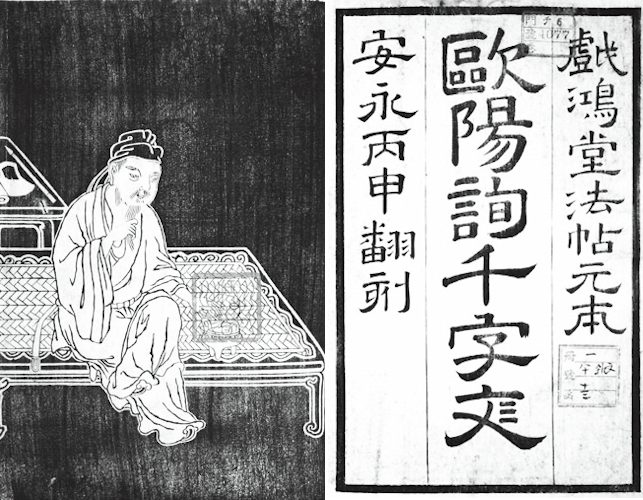
Notes
When I considered adding the 1,000 character classic to the Chinasage web site I had expected to be able to just refer to an existing text and leave it at that. However I found problems with each version I looked at. Some just used simplified characters others just traditional. I found quite a number of transcription errors both in the Chinese and English but the big thing was that the English translation did not seem as clear and flowing as it could be.
I have studied the characters and five separate translations. For each character I give the pinyin, both simplified and traditional characters. The vast majority of characters are the same in both simplified and traditional but it is irritating to see a break in the flow of groups of characters to highlight each difference so instead each character is given in both forms.
The main authority I have used is Nathan Sturman ➚ which itself is based on the Zhongguo Mengxue Tushuo ➚ series, edited Xu Hairong, Huaxia Chubanshe, Beijing, 2001.
Rhyming
As well as putting 1,000 unique characters in some sort of logical order the author manages to keep a rhyme going. As the classic was read aloud by everyone in the class this was an important consideration. The difficultly in keeping a strict rhyme is impossible at times but the whole of the second chapter uses ‘ng’ for lines 1-40 and 52-81 which is impressive. I have made no attempt to make the English translations rhyme.
The Classic Code
This classic has been used as a simple cipher. As the characters occur only once they can be referred to by their position in the text. Each character has a unique three digit position. So any string of digits can be encoded in groups of three. For example 高兴 gāo xìng would be 高504 兴261 . So the six digit number 504261 uniquely encodes gaoxing 'happy'. In times when all Chinese would know the classic by heart this was a way of communicating without risk of interception by those without a Classical Chinese education. In a similar way the order of characters could be used to order documents - just put the character for the number on the sheet of paper and you can easily put 1,000 pages back into order. In a nod to this old method of encoding the first 80 characters of the classic are sometimes printed on lottery tickets.
Decline and rise
The classic does not cover many everyday characters, for example 很 hěn ‘very’ and 他 tā ‘he’ are missing, and so is not very good as a first language primer. It should be remembered it was intended as calligraphy practice rather than a guide to conversational Chinese.
The Thousand character classic fell out of favor towards the end of the Qing dynasty when Western teaching methods were introduced. In recent years there has been a bit of a revival, with academic success so important to youngsters the learning of the three ancient teaching classics is seen as giving their children an edge - not just language but a glimpse of history and culture too. For the same sort of reason some children are learning the abacus.
Only 999 different characters
In the modern version there are 999 not 1,000 unique characters. This is because the character 絜 is repeated at positions 21 [ 164] and 105 [836] but according to many these two are pronounced differently jié clean and xié pure, regulated. It is most likely that two rather similar but different characters are now drawn in the same way. Various proposals have been made to remove this slight defect but none have been universally accepted. Alternatively, there is a widespread view that something flawless is too boastful and would be punished by the gods, it's quite nice to think that the author deliberately chose not to attempt perfection.
In this version there are three further duplicated characters, for example 发 fā at 13 [102] and 19 [148] but in this case it because the simplification of traditional characters has produced the duplication - they were distinct characters in the original, traditional form.